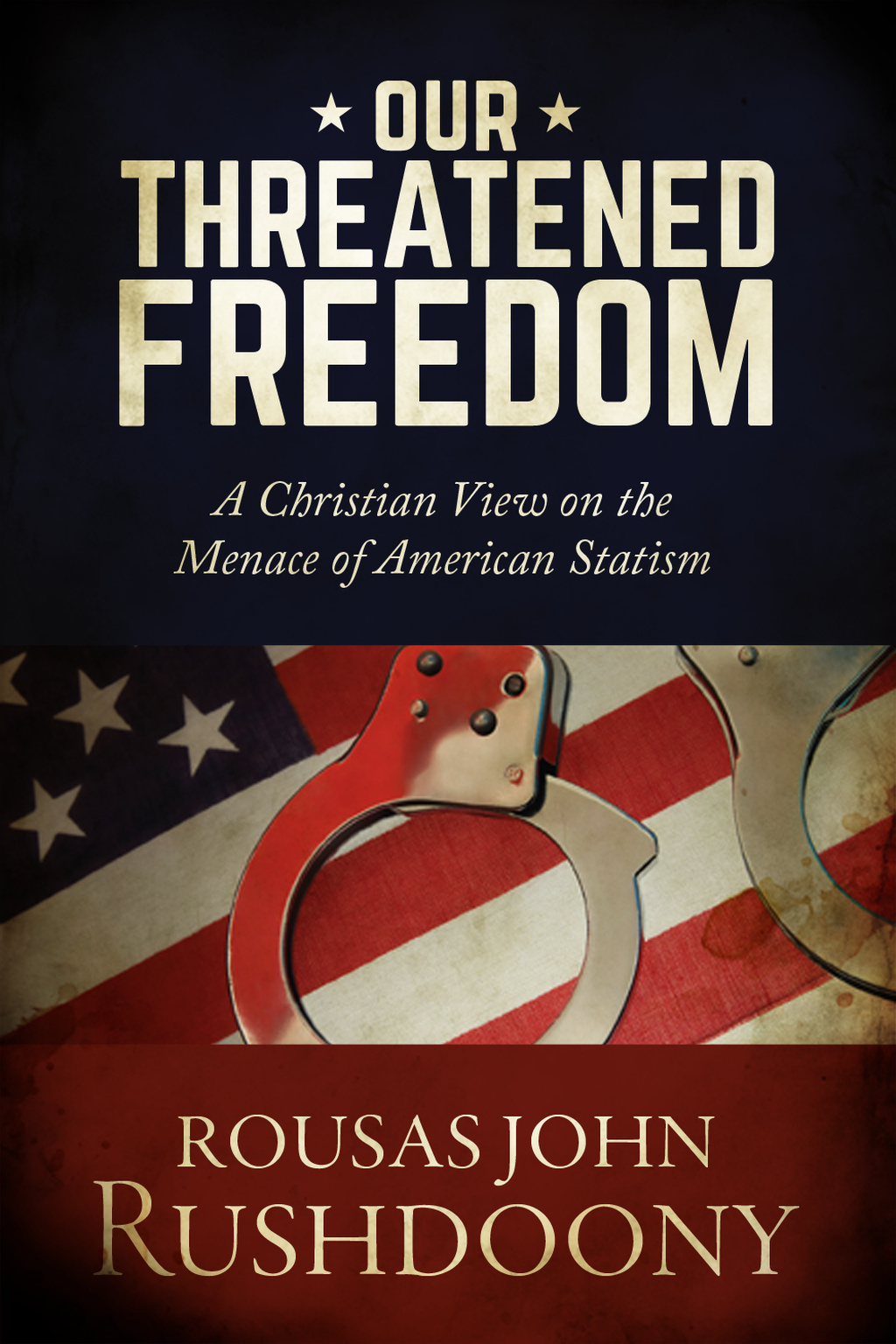
Our Threatened Freedom: A Christian View on the Menace of American Statism
R. J. Rushdoony’s essays seem even more timely today as we are witnessing a staggering display of state intrusion into every area of life. This is the outcome of humanistic thinking. It is the end result of political salvation as both Left and Right continue to practice the belief that we can somehow get better—or less—government by way of politics. However, Rushdoony’s comments are pastoral and theological, not political.
eBook , Paperback

- R. J. Rushdoony
Far from carrying out its Biblical mandate to be a terror to evildoers, civil government in America has increasingly become a terror to its law-abiding citizens.
R. J. Rushdoony’s essays seem even more timely today as we are witnessing a staggering display of state intrusion into every area of life. This is the outcome of humanistic thinking. It is the end result of political salvation as both Left and Right continue to practice the belief that we can somehow get better—or less—government by way of politics. However, Rushdoony’s comments are pastoral and theological, not political. He did not spin the issues for political gain, but spoke as a man who feared God and desired to know how God’s Word was applicable to our times. Throughout these concise, insightful essays, you will see that true and lasting freedom is the end result of responsible, faithful Christians exercising self-government in terms of God’s Word.

- R. J. Rushdoony
Rev. R.J. Rushdoony (1916–2001), was a leading theologian, church/state expert, and author of numerous works on the application of Biblical law to society. He started the Chalcedon Foundation in 1965. His Institutes of Biblical Law (1973) began the contemporary theonomy movement which posits the validity of Biblical law as God’s standard of obedience for all. He therefore saw God’s law as the basis of the modern Christian response to the cultural decline, one he attributed to the church’s false view of God’s law being opposed to His grace. This broad Christian response he described as “Christian Reconstruction.” He is credited with igniting the modern Christian school and homeschooling movements in the mid to late 20th century. He also traveled extensively lecturing and serving as an expert witness in numerous court cases regarding religious liberty. Many ministry and educational efforts that continue today, took their philosophical and Biblical roots from his lectures and books.